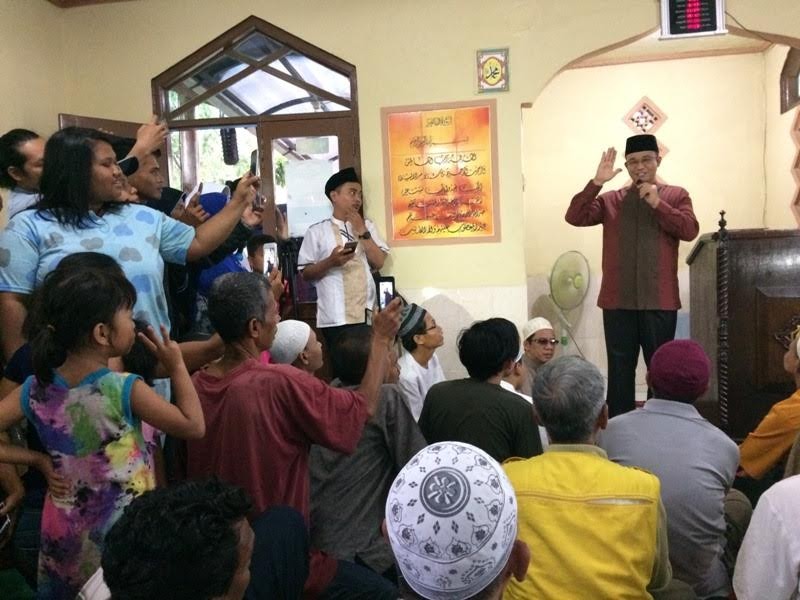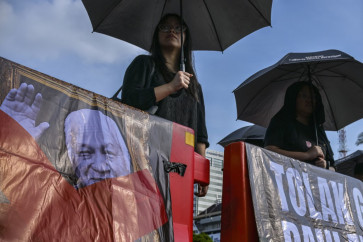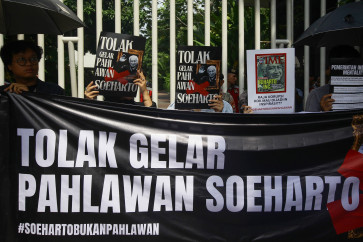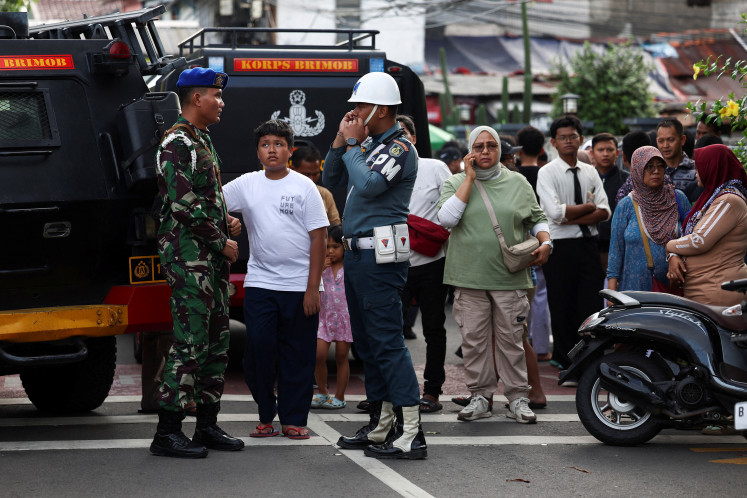Popular Reads
Top Results
Can't find what you're looking for?
View all search resultsPopular Reads
Top Results
Can't find what you're looking for?
View all search resultsClerics, Islamic schools told to stay away from politics
Change text size
Gift Premium Articles
to Anyone
Islamic boarding schools (pesantren) across the country are being told to stay away from politics.
"It's better for the kyai [Muslim clerics] not to be involved in politics. If they are, the pesantren could be neglected and the government could interfere with them, which is not good for the essence of pesantren itself," Muslim scholar Azyumardi Azra of Syarif Hidayatullah Islamic State University (UIN) Jakarta said on Wednesday.
His statement comes in response to the growing conservative religious sentiment that marked the divisive Jakarta gubernatorial elections and which has seen many mosques become politicized. Many fear the same trend may shape the upcoming 2018 regional elections, which will be held simultaneously.
Three country's most-populous provinces — West Java, Central Java and East Java — are among 171 regions that will partake in the regional elections.
Data from 2012 from the Religious Affairs Ministry showed that of the approximately 27,000 pesantren across the country, 78 percent were located in these three provinces.
(Read also: Anies celebrates victory with conservatives at Istiqlal Mosque)
Muhammad Hosnan of Annuqayah Sumenep Islamic boarding school in Madura said that ahead of the 2018 East Java election, many political actors had been trying to approach numerous pesantren.
"This worries us. As pesantren, we are close with the local people. But politics is involved, the essence of our relationship with the public becomes ambiguous," Hosnan said.
Abdul Mu'ti, secretary-general of country's second-largest Muslim organization Muhammadiyah, said the phenomenon had become a new challenge for the pesantren.
"What is most important is that the kyais and students understand that having different political stances is normal," Abdul said. (dmr)










